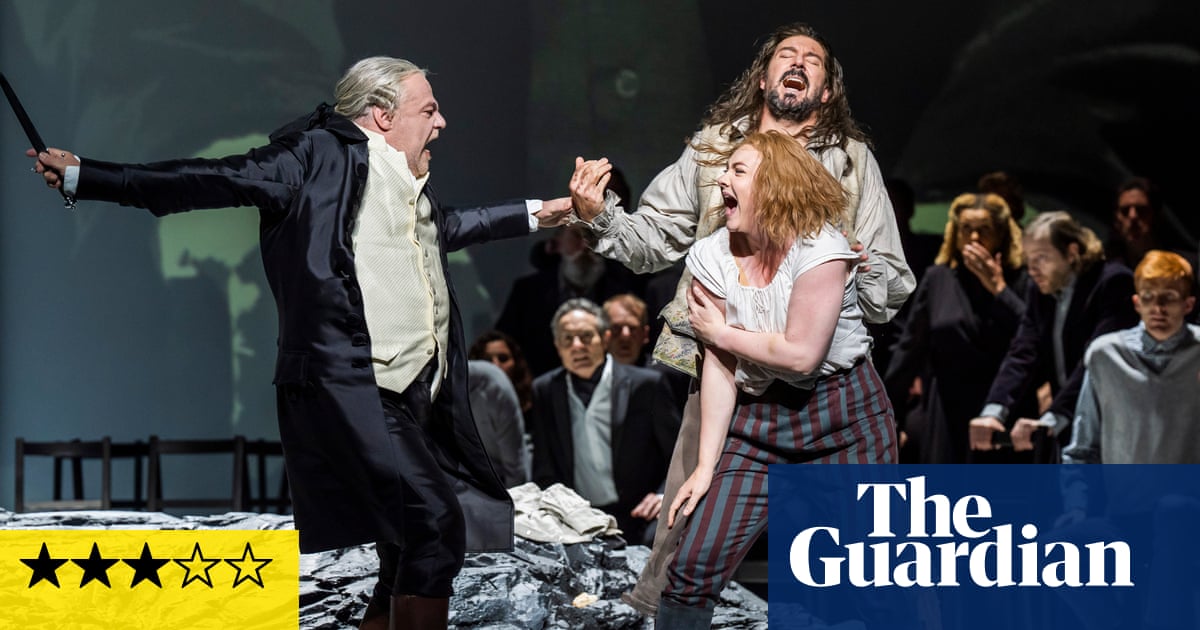More than 200 years on, the most remarkable thing about Beethoven’s Fidelio remains its prison setting. Even in our supposedly more enlightened world, prisons are out of sight and mind. This enduring complacency forms the main target of Tobias Kratzer’s production for the Royal Ballet and Opera, but it is achieved by turning Beethoven’s hymn to the triumph of hope and love into something it is not.
The first half is set more or less in period. Kratzer moves the setting from autocratic Spain to revolutionary France, with additions to the spoken dialogue so as to insert his political points. The heroine’s cross-dressing disguise as Fidelio is rumbled early too, pushing Marzelline, the jailer’s daughter, into a more forward role in the drama. There is also a horse on stage – always a bad idea.
After the interval, things change more radically. In place of the usual dungeon darkness, there is a modern-dress chorus in a brightly lit postmodern setting, sucking sweets and glugging the water that the prisoner Florestan craves. They sit studying the human drama that is being played out in front of them but keep their distance until the outcome has been decided (in another of Kratzer’s story tweaks), at which point they grab souvenirs before the final chorus blazes.
It’s certainly a thoughtful take, and Fidelio is never a straightforward piece to stage. But the production, whose first outing in 2020 was interrupted by the pandemic, ultimately lands us in a different place from Beethoven’s fervour and idealism. That, presumably, is Kratzer’s unsettling intention.
Alexander Soddy’s restless conducting is very much in keeping with Kratzer’s iconoclasm. Some traditional luminous moments like the first act quartet and even the prisoners’ chorus were not allowed to linger on the ear. But not even the transformed second-half setting can dull the impact of Beethoven’s tenebrous opening pages, richly played, or the fire of the final chorus, ferociously sung.
The 2020 cast was star-studded, headed by Lise Davidsen and Jonas Kaufmann. Vocally this revival is not on that exalted level but Jennifer Davis brought her impressive range and controlled attack to Leonore and Eric Cutler exuded generalised fervour as Florestan. Christina Gansch took advantage of Marzelline’s unusual prominence to enhance a growing reputation. Peter Rose’s Rocco and Jochen Schmeckenbecher’s Don Pizarro both gave fine stalwart performances, and Siphe Kwani’s First Prisoner suggested a voice to follow.










